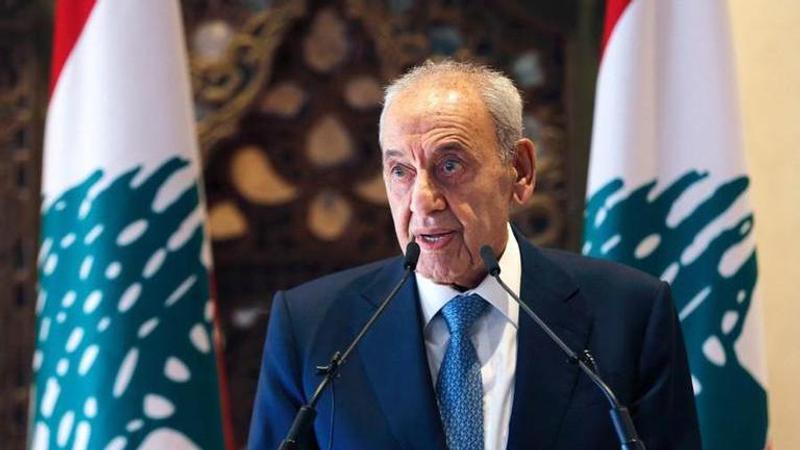Published 11:12 IST, October 2nd 2020
Lebanon, Israel announce US-mediated talks over sea border
Lebanon and Israel have reached an agreement on a framework of indirect, US-mediated talks over a longstanding disputed maritime border between the two countries, the parties announced Thursday.

Lebanon and Israel have reached an agreement on a framework of indirect, US-mediated talks over a longstanding disputed maritime border between the two countries, the parties announced Thursday. The talks will be held at the headquarters of the UN peacekeeping force in the southern Lebanese border town of Naqoura under the banner of the United Nations.
The talks are expected to begin on October 14, according to US Assistant Secretary of State for Near Eastern Affairs David Schenker, the top US diplomat for the Middle East. The agreement “will allow both countries to begin discussions, which have the potential to yield greater stability, security, and prosperity for Lebanese and Israeli citizens alike,” US Secretary of State Mike Pompeo said in a statement.
He added that the agreement is the result of nearly three years of intense diplomatic engagement by US officials. An Israeli official said last week that a deal had been reached, but there was no immediate Lebanese or US confirmation at the time. The official said Energy Minister Yuval Steinitz will lead the Israeli delegation.
“We are hoping to start direct negotiations in the near future. Our presumptive goal is to arrive at a peaceful resolution on the matter of the Exclusive Economic Zone bordering between Israel and Lebanon in a way that benefits both neighbouring nations," Steinitz said in a statement.
Israel and Lebanon have no diplomatic relations and are technically in a state of war. They each claim about 860 square kilometers (330 square miles) of the Mediterranean Sea as within their own exclusive economic zones. Indirect talks mean that Lebanese army negotiators will not be speaking directly to members of the Israeli delegation but through U.N. and US officials. Schenker said he will lead the US mediation team for at least the first round. He would not specify exactly who would be representing the Israelis or the Lebanese adding that the talks are strictly about maritime issues and delineating a border.
The UN peacekeeping force in southern Lebanon, known as UNIFIL, welcomed the agreement saying it stands ready “to extend to the parties all the support at its disposal and facilitate efforts towards a resolution.” UN Secretary-General Antonio Guterres also welcomed the announcement of the agreement to launch talks, UN spokesman Stephane Dujarric said.
“The United Nations, through its representatives, will remain fully committed to supporting the process as requested by the parties and within its capacity and mandate,” Dujarric said.
The United States has been mediating between Lebanon and Israel since 2010 until a breakthrough was reached in July on the framework for the indirect talks, according to Lebanon's Parliament Speaker Nabih Berri, who announced the deal Thursday. He said the US mediation stalled but it received a push in March last year during a visit to Beirut by Pompeo during which he discussed the dispute with Lebanese officials.
Lebanon's President Michel Aoun welcomed the agreement saying he hopes "that the American side will continue its role as a fair mediator.” Aoun said he will be closely supervising the talks starting with the formation of the team and throughout the negotiations.
Lebanon and Israel hold monthly tripartite indirect meetings in Naqoura to discuss violations along their border. The countries also held indirect negotiations in the 1990s when Arab states and Israel were working on reaching peace agreements. Although the Palestinians and Jordan signed agreements with Israel, Lebanon and Syria did not. The agreement on the framework comes as Lebanon is going through its worst economic and financial crisis in decades.
Beirut is hoping that oil and natural gas discoveries in its territorial waters will help it pay back its massive debt. Lebanon began offshore drilling earlier this year and is expected to start drilling for gas in the disputed area with Israel before in the coming months. Berri, the parliament speaker, said the gas discoveries on the Israeli side of the Mediterranean “prove that there are reserves and God willing this will help us pay our debt.” Lebanon has one of the highest debt ratios in the world standing at about 170 per cent of its GDP. Three of Lebanon's 10 offshore blocks are along the disputed maritime border with Israel.
The Trump administration is likely to celebrate the agreement as another diplomatic breakthrough in the Middle East, following recent agreements in which the United Arab Emirates and Bahrain — Gulf countries that have never gone to war with Israel — agreed to recognize it and establish diplomatic relations.
Schenker, the US diplomat, said the talks have nothing to do with the establishment of diplomatic relations or normalisation between Lebanon and Israel. He added that "they will hopefully come to a resolution that will allow both sides to benefit from the resources there.”
(Image Credits: AP)
This story has not been edited by www.republicworld.com and is auto-generated from a syndicated feed
Updated 11:12 IST, October 2nd 2020




